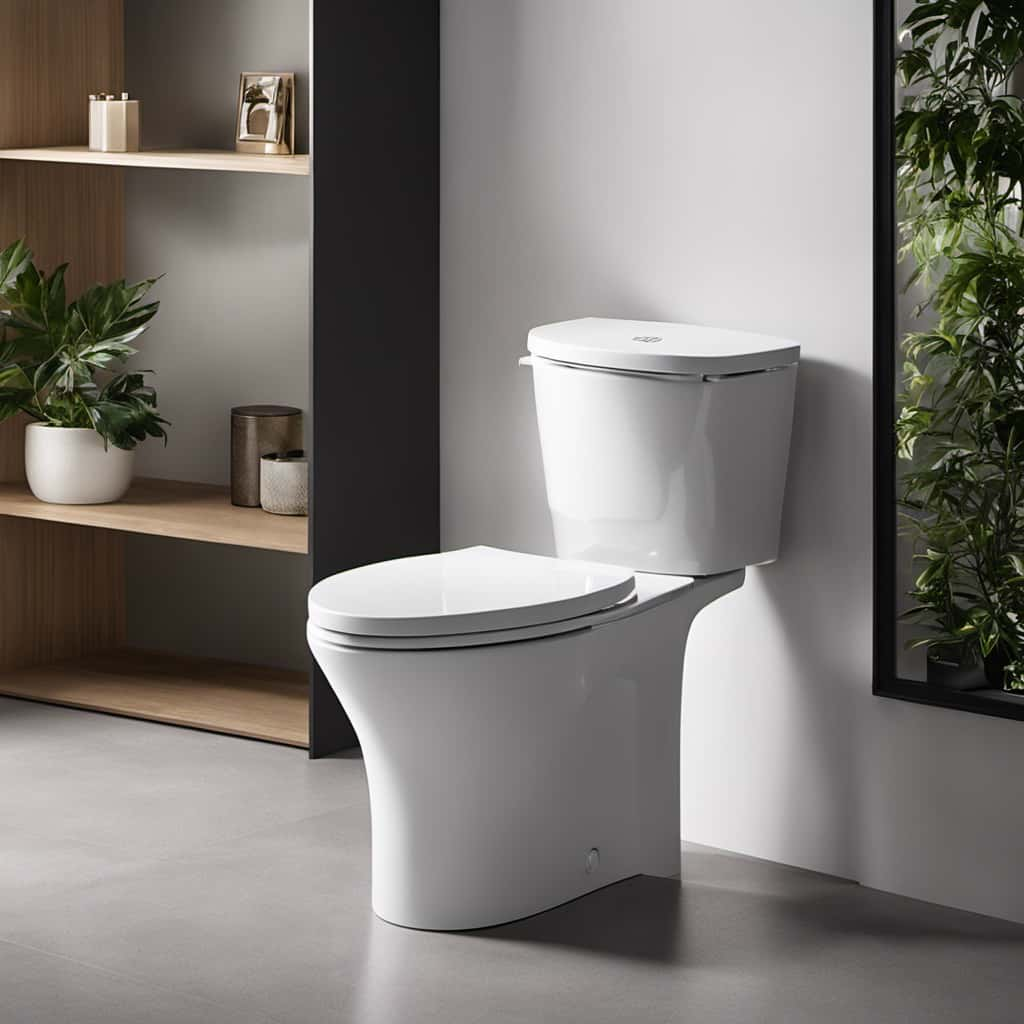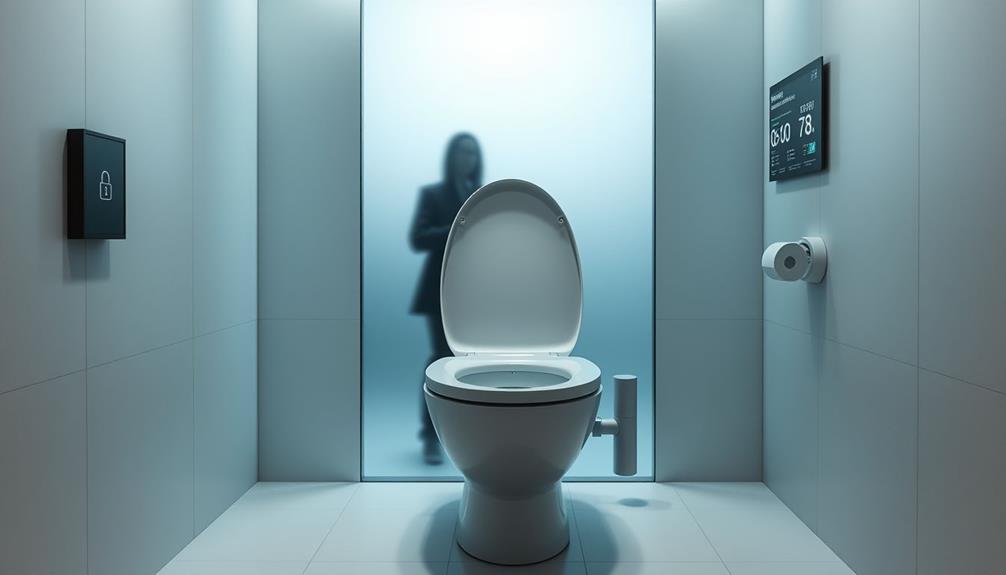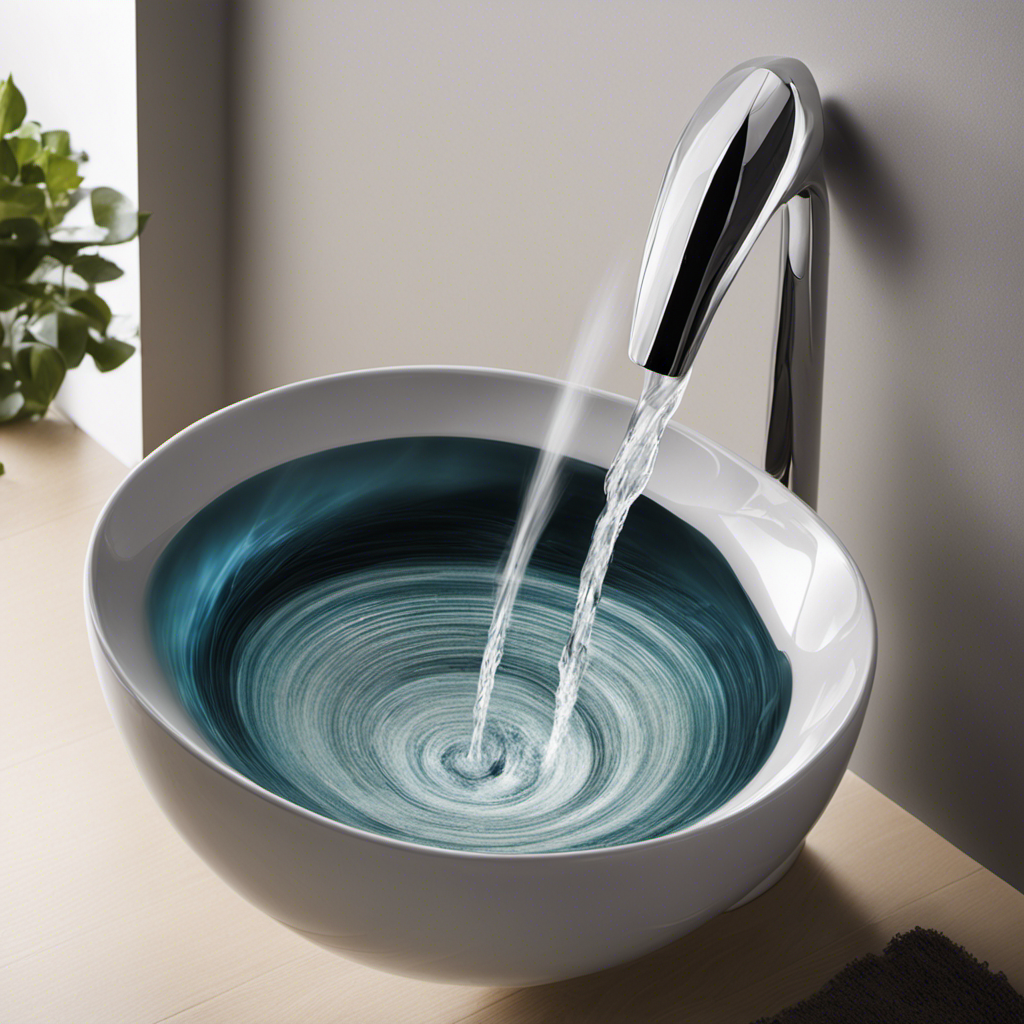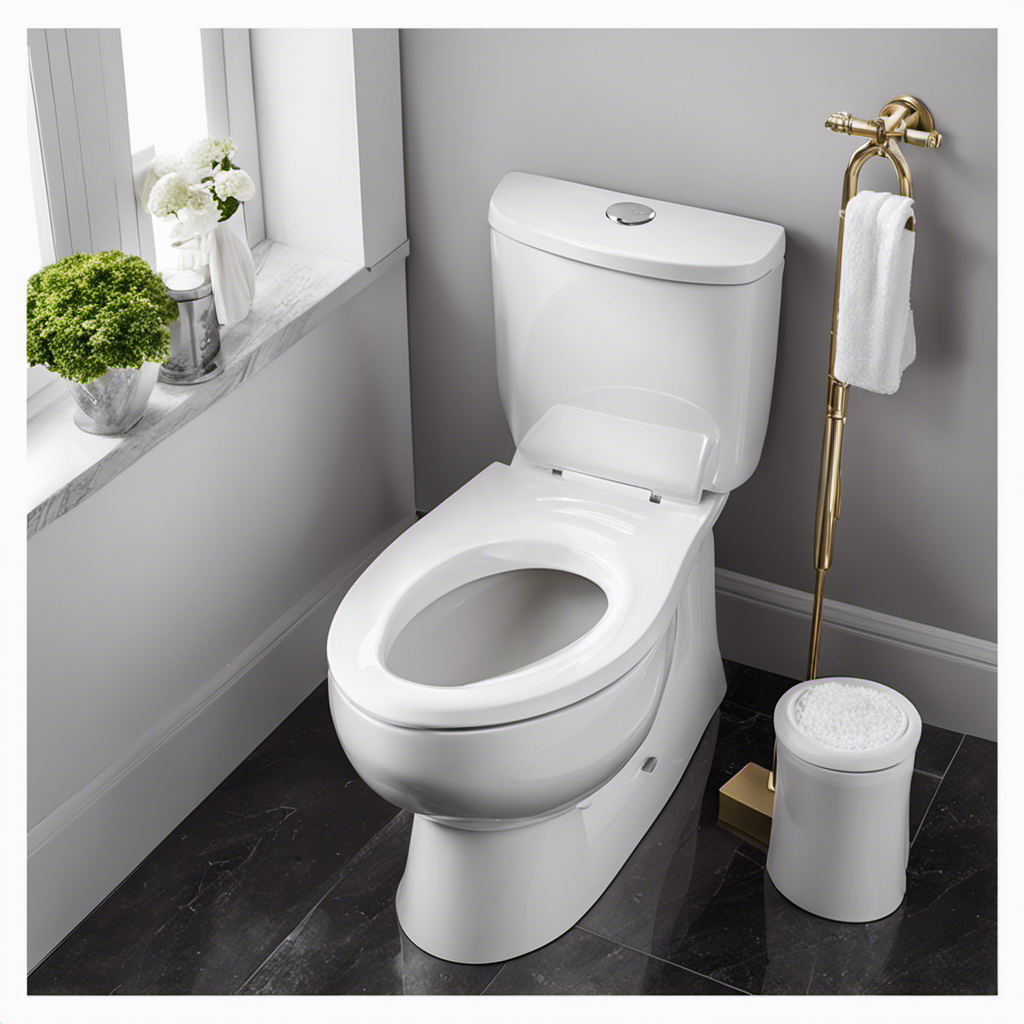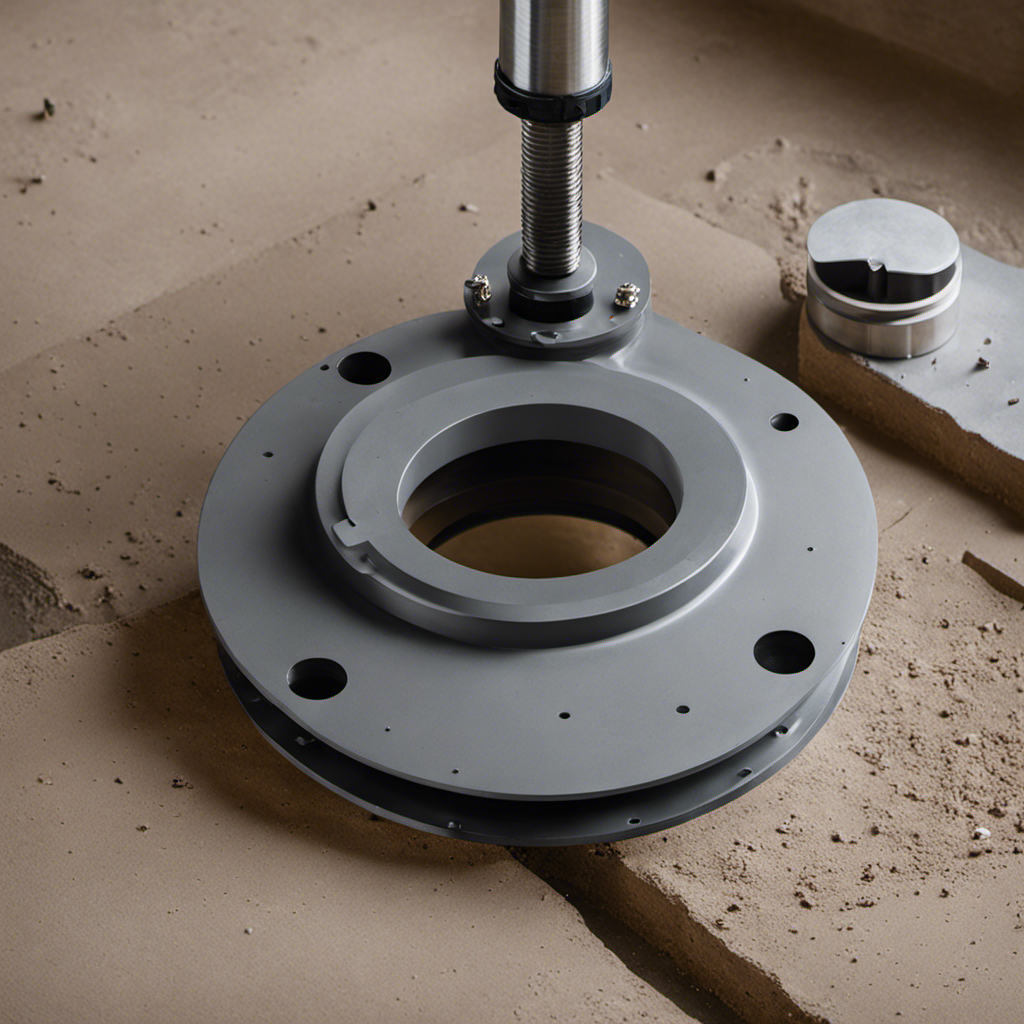Are you tired of your toilet’s lackluster flushing power? We’ve got you covered!
In this article, we’ll show you how to turbocharge your toilet and make it flush with the force of a raging river.
From checking the water level to upgrading to a high-efficiency toilet, our step-by-step guide will help you master the art of a powerful flush.
Say goodbye to weak flushes and hello to a toilet that gets the job done right!
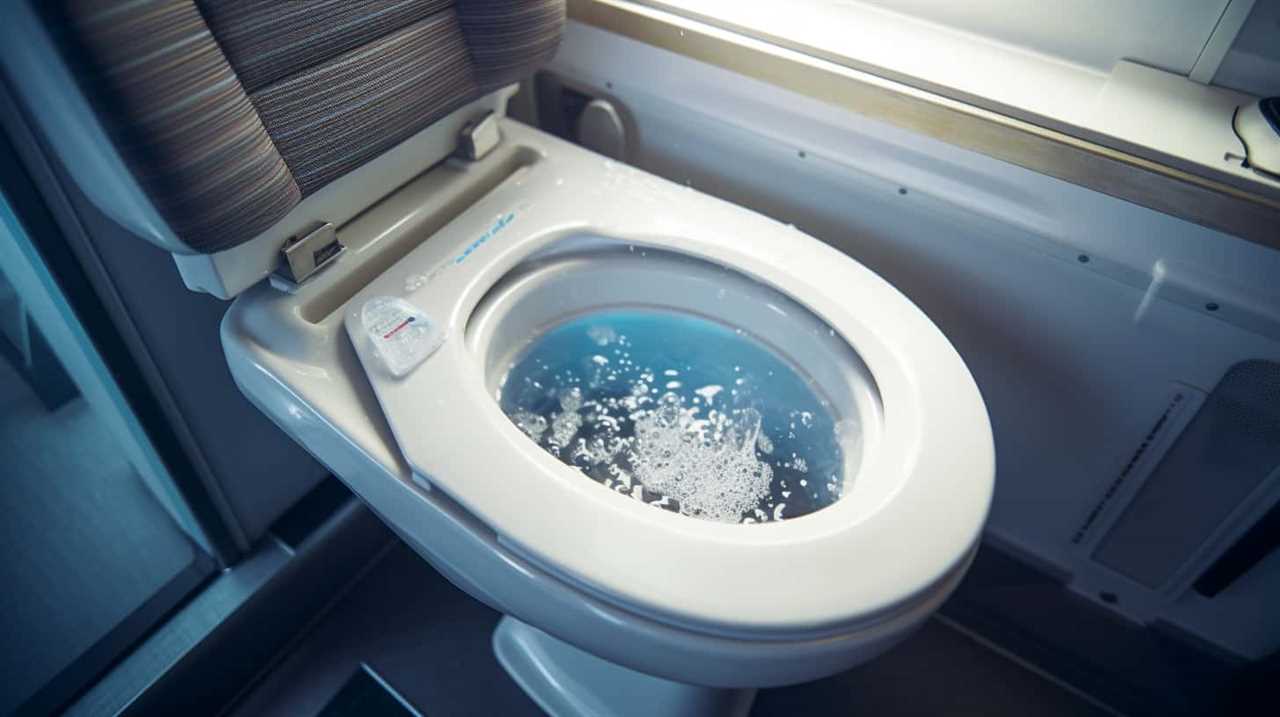
Key Takeaways
- Adjust the water level properly for optimal flushing power by turning the fill valve clockwise to increase it and counterclockwise to decrease it.
- Properly adjust the flapper chain by measuring its length and ensuring it has some slack. Remove links if the chain is too long and add links if it is too short.
- Use a toilet plunger to create suction and dislodge clogs. Submerge the plunger in water for a better seal and repeat the plunging motion until the water drains properly. For stubborn clogs, use a toilet auger by inserting it into the drain opening and rotating the handle clockwise to break up the obstruction.
- Regularly clean the jets and siphon holes to improve water flow. Turn off the water supply, flush to empty the tank, gently scrub the jets and siphon holes with a brush or toothbrush, and then rinse the components thoroughly before reconnecting the water supply.
Check the Water Level
First, we need to check if the water level in our toilet tank is at the correct height. To increase water flow during flushing, it’s crucial to ensure that the water level is set correctly.
Start by removing the toilet tank lid and locating the fill valve, which is usually on the left side. Adjust the fill valve by turning it clockwise to increase the water level or counterclockwise to decrease it.
It’s vital to strike a balance between too much and too little water. The correct water level should be marked on the inside of the tank or specified in the toilet’s manual. Remember to test flush after making any adjustments to ensure optimal water flow.
Clear Any Clogs or Obstructions
To improve the force of your toilet flush, we need to clear any clogs or obstructions.
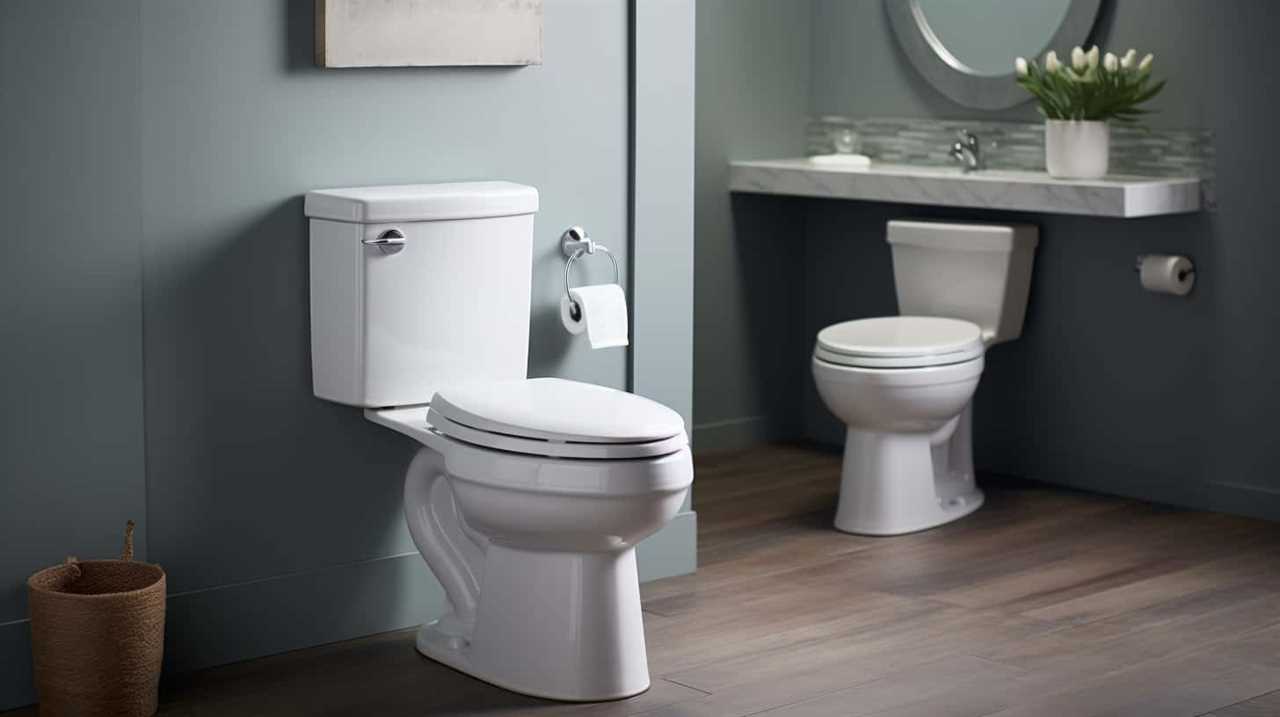
One effective technique is to use a toilet plunger. Start by ensuring the plunger is submerged in water, creating a seal around the drain opening. Then, vigorously push and pull the plunger to create suction and dislodge the clog. Repeat this motion several times until the water begins to drain properly.
For stubborn clogs that can’t be cleared with a plunger, a toilet auger can be used. Insert the auger into the drain opening and rotate the handle clockwise to break up the obstruction. Slowly retract the auger, taking care not to damage the toilet bowl.
Remember to always follow safety precautions and wear protective gloves when working with toilet clogs.
Adjust the Flapper Chain
After clearing any clogs or obstructions, we can adjust the flapper chain to improve the force of the toilet flush. By properly adjusting the chain, we can ensure that the flapper valve opens fully, allowing a stronger flow of water into the bowl. Adjusting the flapper chain is a simple process that can be done with just a few tools. Here’s a step-by-step guide:

- Lift the toilet tank lid and locate the flapper chain.
- Measure the length of the chain and ensure that it has some slack but isn’t too loose.
- If the chain is too long, adjust it by removing one or more links.
- If the chain is too short, adjust it by adding one or more links.
By adjusting the flapper chain, we can optimize the water pressure and improve the flush force. However, if the chain adjustment doesn’t resolve the issue, it may be necessary to replace the flapper valve. This will ensure that the valve is sealing properly and allowing enough water to flow into the bowl.
Now, let’s move on to the next step: cleaning the jets and siphon holes.
Clean the Jets and Siphon Holes
To improve the force of our toilet flush, we can clean the jets and siphon holes using a simple method. Over time, mineral deposits and debris can clog these openings, reducing water flow and decreasing the effectiveness of the flush. To increase water pressure and ensure a powerful flush, it’s essential to clean these components regularly.
Start by turning off the water supply to the toilet and flushing to empty the tank. Using a small brush or toothbrush, gently scrub the jets and siphon holes to remove any buildup. Rinse thoroughly and reconnect the water supply.
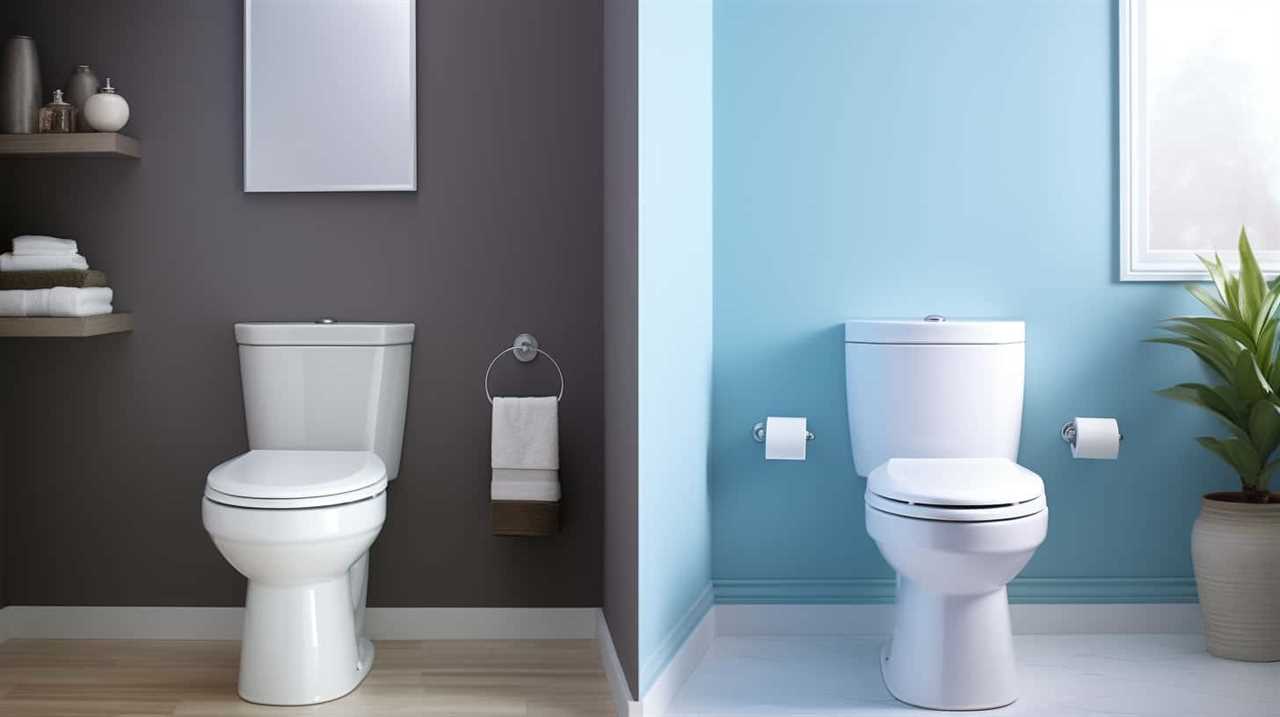
If cleaning the jets and siphon holes doesn’t solve the issue, consider replacing a faulty flush handle or upgrading to a high-efficiency toilet, which will further improve flushing performance.
Upgrade to a High-Efficiency Toilet
We can consider upgrading to a high-efficiency toilet for a more powerful flush. To achieve this, we’ve two options to explore: installing a pressure-assisted flush system or exploring dual flush options.
A pressure-assisted flush system uses compressed air or water to provide extra force during flushing. This system creates a more efficient and powerful flush, ensuring that waste is effectively removed from the toilet bowl.
On the other hand, dual flush toilets offer the flexibility of using different flush options depending on the type of waste. Typically, these toilets have two buttons or levers, one for a full flush and another for a partial flush. The full flush option is designed for solid waste, providing a more forceful flush, while the partial flush option is meant for liquid waste, conserving water.

Frequently Asked Questions
How Do I Fix a Toilet That Constantly Runs?
To fix a toilet that constantly runs, begin by checking the toilet tank for any issues. Look for toilet tank repair instructions online and consider adjusting the toilet flapper if necessary.
What Should I Do if My Toilet Won’t Flush at All?
If your toilet won’t flush at all, our first step would be to check for a toilet drain blockage or a malfunctioning flushing mechanism. These issues can prevent proper flushing and may require professional assistance.
Is It Necessary to Hire a Plumber to Fix a Weak Flushing Toilet?
Hiring alternatives and DIY solutions are available to fix a weak flushing toilet. It is not always necessary to hire a plumber. We can troubleshoot and replace parts like the flapper or adjust the water level to increase flushing force.
How Can I Prevent My Toilet From Clogging Frequently?
To prevent frequent clogs, we must focus on proper toilet maintenance. Regular cleaning and avoiding flushing non-flushable items are key. Remember, a well-maintained toilet is like a smoothly flowing river, free from obstructions.
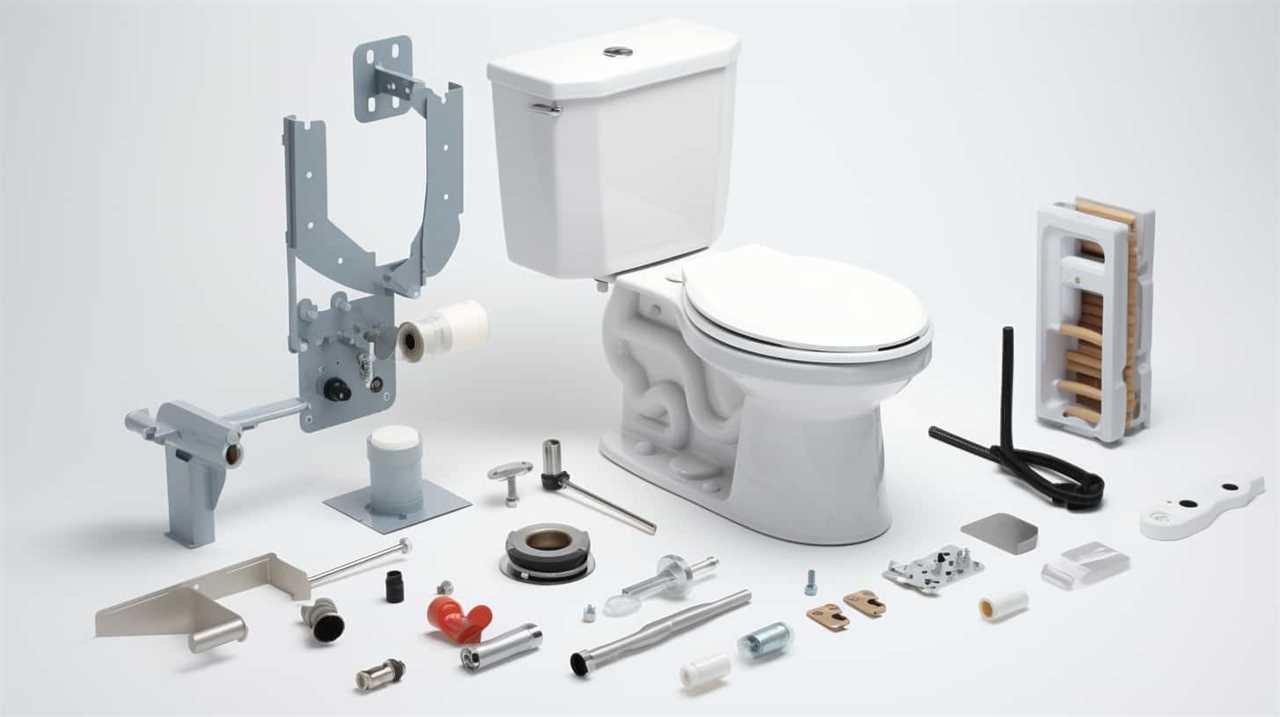
Can I Increase the Water Pressure in My Toilet to Improve Flushing Force?
To increase toilet flushing power, there are several ways to improve the flush. Adjusting the water level, cleaning the rim jets, and checking the flapper valve can all contribute to a stronger flush.
Conclusion
In conclusion, by checking the water level, clearing any clogs, adjusting the flapper chain, cleaning the jets and siphon holes, or upgrading to a high-efficiency toilet, you can increase the force of your toilet flush.
Remember, ‘Where there’s a will, there’s a way.’ This adage reminds us that with determination and effort, we can overcome any obstacle, even when it comes to improving the flushing power of our toilets.
So don’t give up, and start implementing these steps for a more powerful flush.

